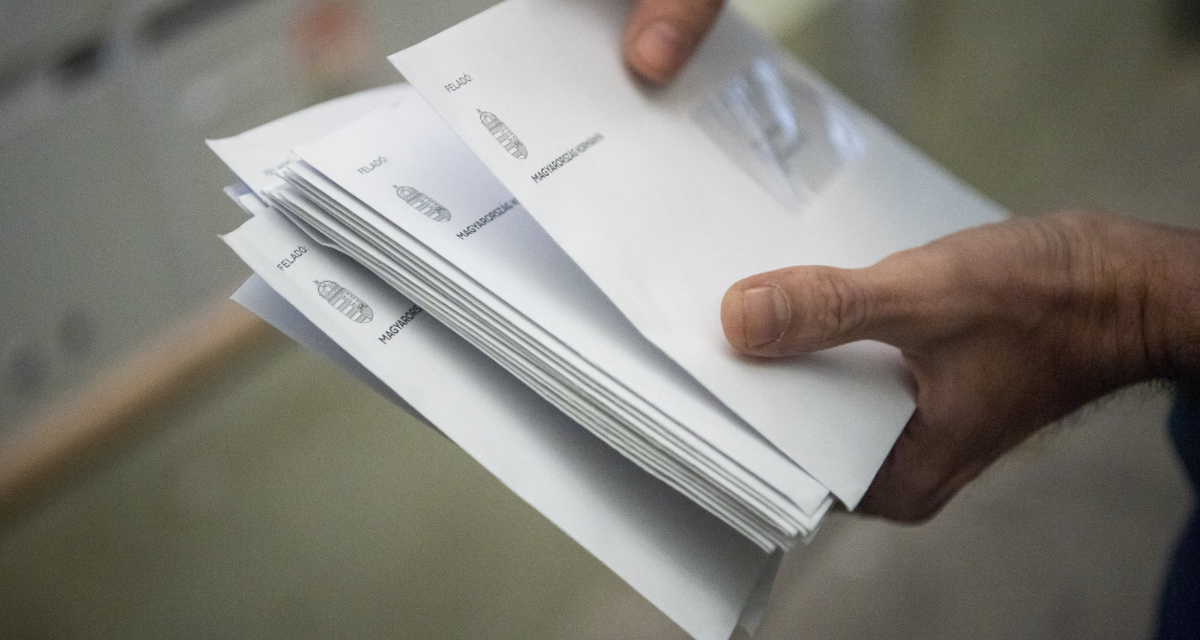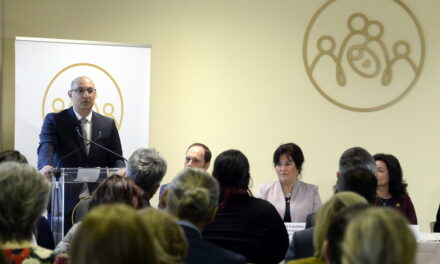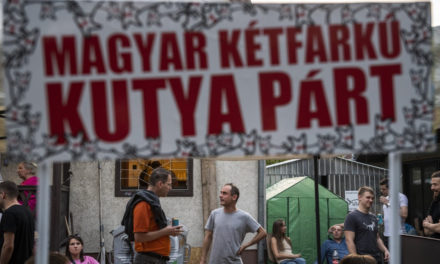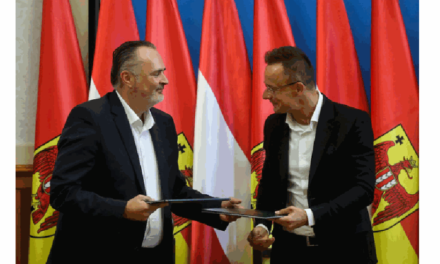The questions of the sovereignty protection consultation put them in a political context, the minister responsible for European Union affairs said on his Facebook page on Thursday.
János Bóka, reacting to the groundless criticism of the national consultation on the protection of sovereignty, indicated that the government has been raising the issues of the consultation in all European Union forums for years.
We found deaf ears in Brussels, so we are now turning to the Hungarian people, we do this in the hope that we will receive clear and decisive answers to our questions next June, not only in Hungary, but in the whole of Europe, he added.
The first three questions of the consultation ask about expectations that are set for Hungary by the country-specific recommendations adopted in the framework of the European Semester: the utility subsidy, the interest rate cap and the elimination of the extra profit tax, János Bóka pointed out, adding: the European Semester is now cracking in all its parts, the The European Commission took advantage of its information monopoly and resources to gain a dominant role.
"The focus on economic policy is a thing of the past: Hungary received recommendations in many areas, from the independence of the judiciary, through the national energy mix, to the social care system," he emphasized.
János Bóka wrote about the Migration and Asylum Pact that it would further deepen the crisis of the system.
According to the committee, almost a third of the European processing and reception capacity should be created here, the pact stipulates annual relocation targets for the reception of refugees, which could only be triggered by payment of money or alternative offers that can be used in a narrow range, but in crisis situations, distribution that cannot be triggered by other means can also be stipulated - he announced.
According to Bóka, the numbers clearly prove that the EU is constantly in a migration crisis situation, and the mechanism will in practice be transformed into a mandatory relocation quota system operated in permanent crisis mode.
For years, the Hungarian government has been trying to draw attention to the connection between the European migration system and the threat of terrorism, in the spirit of this, we strive to prevent EU development resources from serving the goals of terrorist organizations, even indirectly, he emphasized.
János Bóka alluded to it, the European Council decided to give Ukraine the status of a candidate country in June 2022, but the committee clearly stated in its November country report:
Ukraine failed to fulfill three of the seven conditions, including respect for the rights of national minorities.
Compared to this, the committee, obviously for political reasons, still recommends that the EU start accession negotiations with Ukraine, he pointed out.
The minister recalled that in the summer of 2022, the EU decided to suspend the tariffs and quotas applied to Ukrainian agricultural products with a decree in order to help the Ukrainian economy, thus Ukrainian grain flooded the markets of the bordering member states.
In May 2023, the committee introduced temporary import restriction measures in five member states, but did not extend these measures in September this year, despite the fact that its conditions still exist, he added.
According to János Bóka's assessment, "the committee made a political decision this time as well, leaving no other option than the introduction of national restrictive measures". He added that Hungary could only rely on itself again.
The minister noted about the child protection law that "Brussels is trying to achieve its withdrawal through political pressure, breach of duty proceedings and financial retorts, the Hungarian regulations are also in line with the EU Charter of Fundamental Rights".
The minister reminded that the chairman of the committee promised in his annual evaluation speech last year that since "foreign organizations finance institutes that undermine our values", they will present a democracy protection package whose "legislation will reveal hidden foreign influence and unfair financing". This package was not put forward by the Commission - pointed out János Bóka.
He added: we cannot wait any longer for EU legislation: there is evidence that foreign interference has already taken place during the 2022 parliamentary elections.
Hungary can only rely on itself in this matter, he declared.
Bóka also warns that Brussels wants to create migrant ghettos in Hungary as well.
The minister pointed out that the European asylum system is dysfunctional: every year it lets in hundreds of thousands of people who cheat the system.
Hungary's situation is further worsened by the fact that, according to the Commission, nearly one-third of the pan-European processing and reception capacity should be created here.
"This would mean that almost 8,500 places would have to be continuously reserved not in the early part of the route, but much further in, on the Hungarian-Serbian border, for those illegally arrived migrants who want to get in on the basis of an asylum application," he added, highlighting: considering that a main with a single crossing, you can spend 12 weeks at the receiving station,
we should solve the care of tens of thousands of people at the border every year.
"Almost all of them would sooner or later reach the territory of the EU and from there to the destination country of their choice in the Schengen area. The German, Dutch, and Swedish authorities would then demand that Hungary take back the asylum seekers, if, according to the Dublin system, Hungary is responsible for evaluating the application," the minister emphasized, highlighting that the Pact not only undermines the border protection efforts of the member states that protect the external borders , but also imposes an unacceptable financial and administrative burden on them.













